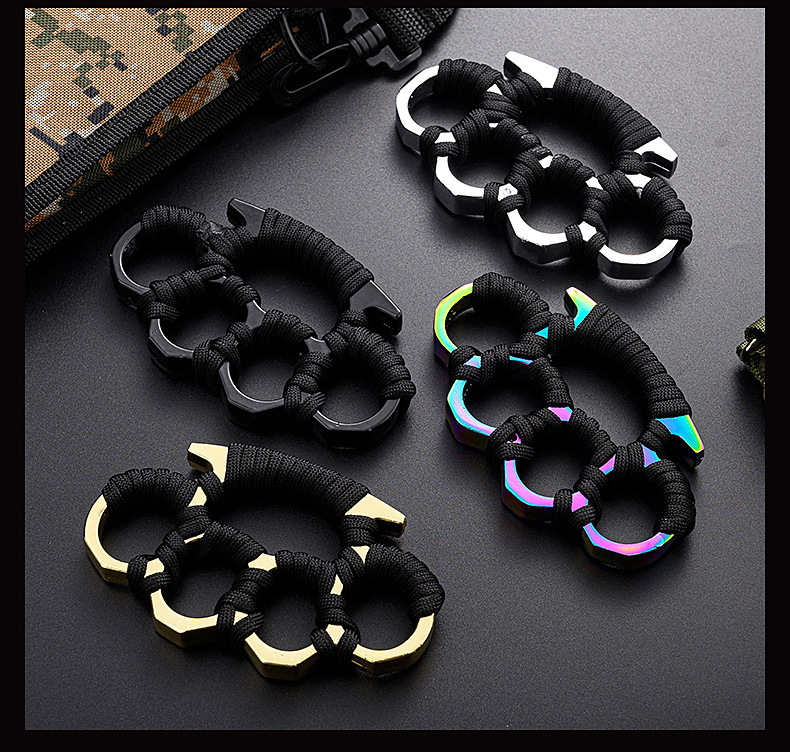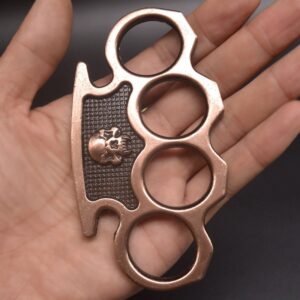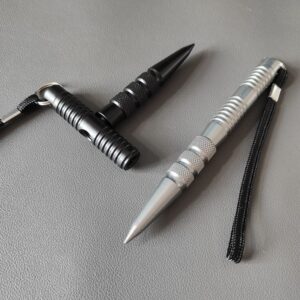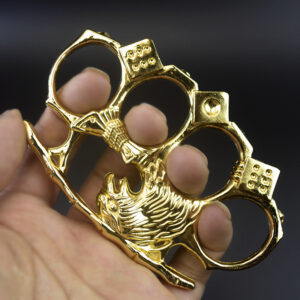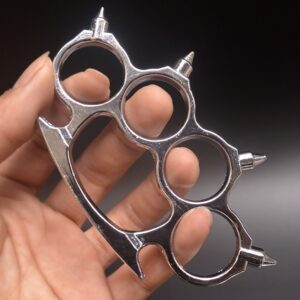No products in the cart.
Can You Carry Brass Knuckles in Your Car? Laws Explained
Part 1: Understanding Brass Knuckles and Their Legal Status
Brass knuckles, also known as knuckle dusters, are handheld weapons designed to fit around the knuckles, increasing the impact of a punch. Made from metal, plastic, or composite materials, they are often associated with self-defense but are heavily regulated due to their potential for serious harm.
The legal status of brass knuckles varies widely depending on location. In some U.S. states, they are completely banned, while others allow ownership but restrict carrying them in public. When it comes to keeping them in a car, the laws become even more nuanced. A car is considered an extension of personal property in some jurisdictions but may also fall under concealed carry laws, depending on how the weapon is stored.
Before storing brass knuckles in your vehicle, it’s crucial to research state and local laws to avoid felony charges or confiscation. Some states, like California and New York, prohibit possession entirely, while others, such as Texas, allow ownership but restrict carrying them in public spaces.
Part 2: Federal vs. State Laws on Brass Knuckles
Unlike firearms, there is no federal law explicitly banning brass knuckles. However, the Switchblade Knife Act of 1958 and subsequent amendments influence how certain weapons, including knuckle dusters, are regulated. This means enforcement largely depends on state and municipal laws.
Some states classify brass knuckles as “deadly weapons” or “prohibited offensive weapons,” making their possession a criminal offense. For example:
- California (Penal Code § 21710) – Complete ban on manufacture, sale, and possession.
- New York (Penal Code § 265.01) – Illegal to own or carry, with misdemeanor or felony penalties.
- Texas (Penal Code § 46.05) – Allows ownership but prohibits carrying in public.
Meanwhile, states like Arizona and Nevada have looser restrictions, permitting ownership and even open carry in some cases. However, storing them in a car’s glove compartment could still be considered concealed carry, leading to legal trouble if not properly researched.
Part 3: Can You Legally Keep Brass Knuckles in Your Car?
The legality of transporting brass knuckles in a car depends on three key factors:
- State laws – Some states treat vehicles as private property, while others consider them public spaces.
- Storage method – Keeping them in the trunk may be legal, while having them within reach (e.g., dashboard or door pocket) could be considered concealed carry.
- Intent of use – If law enforcement believes they are being carried for self-defense or criminal purposes, additional charges may apply.
For example:
- In Illinois, brass knuckles are illegal to possess under any circumstances, meaning even having them in your car could lead to arrest.
- In Florida, ownership is legal, but carrying them in a vehicle may require them to be securely stored (e.g., locked in a case) to avoid weapons charges.
- In Pennsylvania, they are legal to own but illegal to carry in public, meaning keeping them in a car could be interpreted as illegal transport.
Always check local statutes before traveling with brass knuckles, as interstate transport could violate laws in certain jurisdictions.
Part 4: Potential Penalties for Illegal Possession
Carrying brass knuckles unlawfully can result in severe consequences, ranging from misdemeanors to felonies, depending on the state and circumstances. Common penalties include:
- Fines – Up to $1,000 or more in some states.
- Jail time – Misdemeanor charges may carry up to a year in jail, while felonies can lead to multiple years in prison.
- Criminal record – A conviction can affect employment, gun ownership rights, and travel.
Additionally, if brass knuckles are found during a traffic stop, officers may conduct further searches, potentially leading to additional charges if other weapons or illegal items are discovered.
Part 5: Alternatives to Brass Knuckles for Self-Defense
Given the legal risks of carrying brass knuckles, many people opt for legal self-defense alternatives, such as:
- Pepper spray – Legal in most states and highly effective.
- Tactical flashlights – Can disorient attackers without legal restrictions.
- Kubotans (keychain self-defense tools) – Compact and legally permissible in most areas.
- Stun guns/Tasers – Some restrictions apply, but generally more accepted than brass knuckles.
Each of these options provides non-lethal protection while minimizing legal exposure. Before choosing a self-defense tool, always verify local regulations to ensure compliance.
(Article continues with further state-specific breakdowns or legal case examples if needed.)
This article provides a detailed, legally informed breakdown while maintaining readability. Would you like any modifications, such as adding case law examples or a state-by-state table for quick reference?

